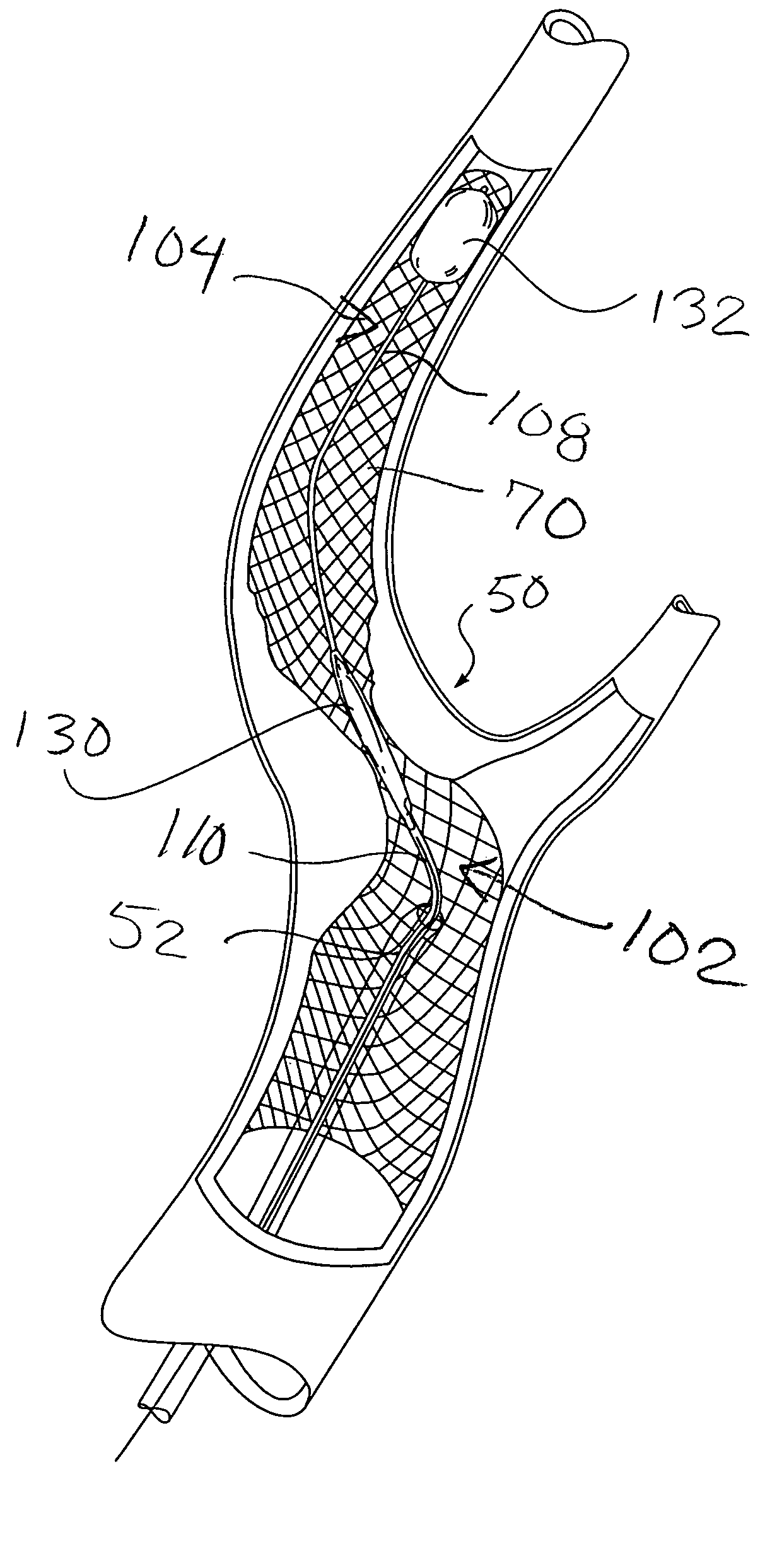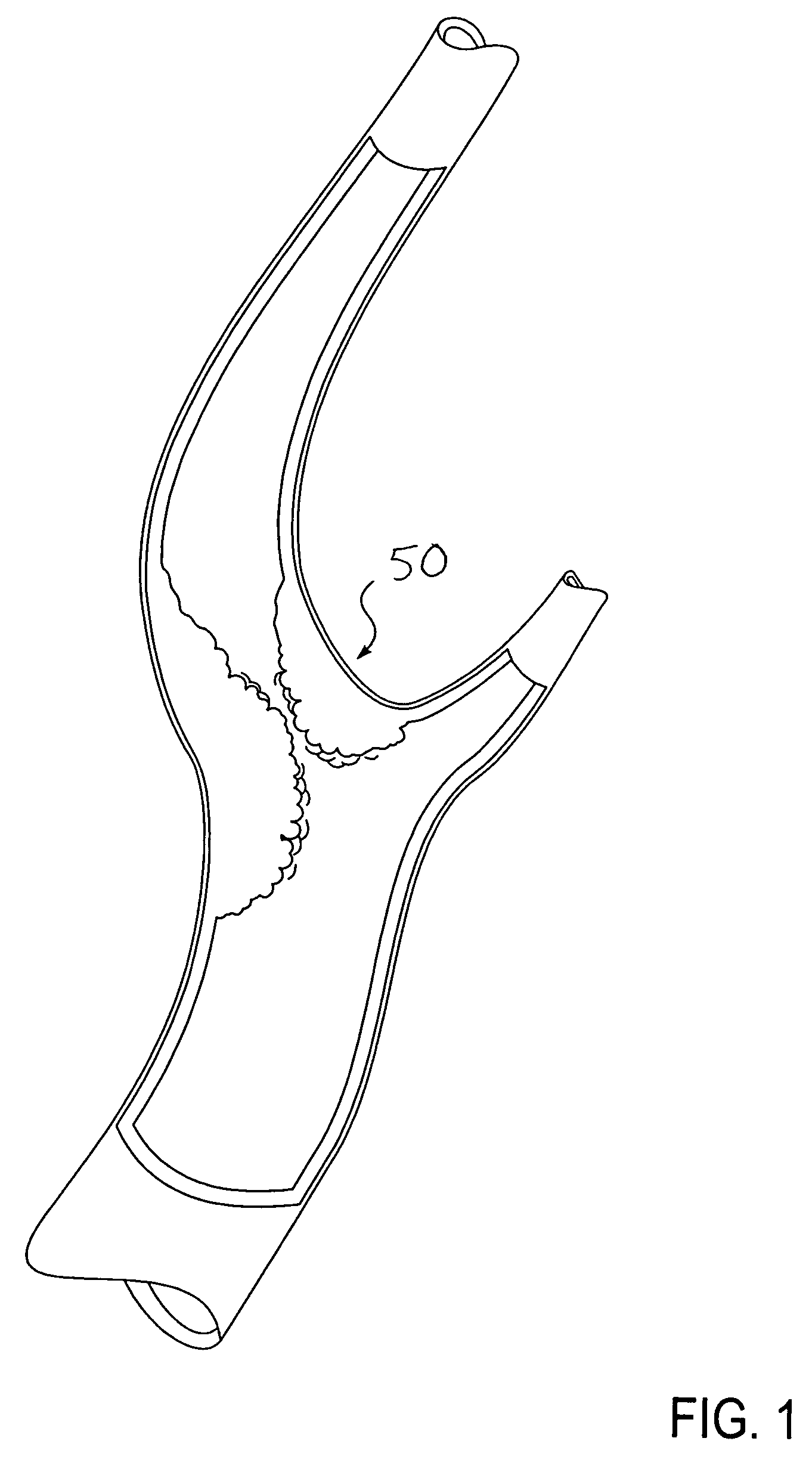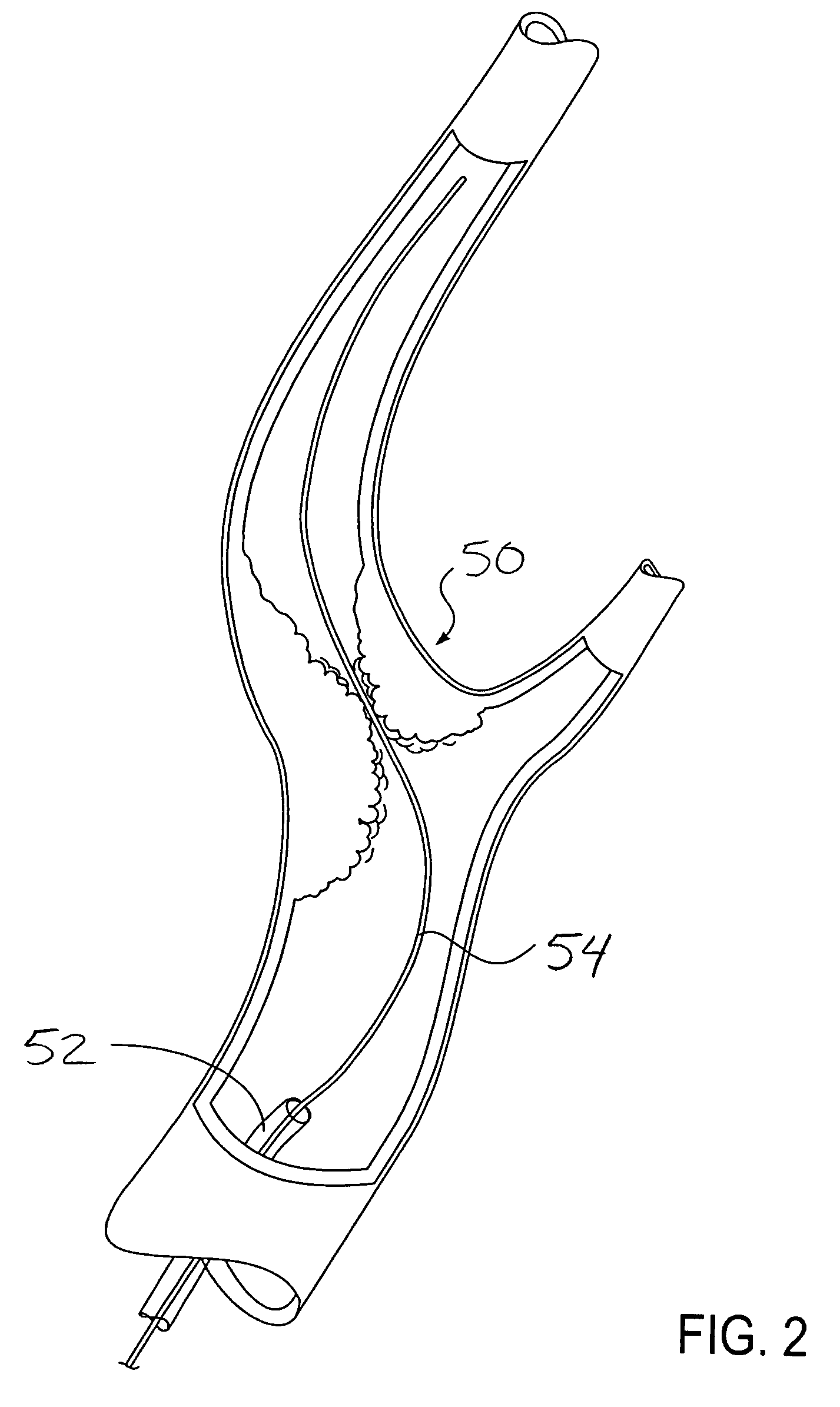Method of performing protected angioplasty and stenting at a carotid bifurcation
a carotid artery and stenting technology, applied in the field of catheter based treatments for vascular diseases, can solve the problems of the most dangerous post-tenting angioplasty step in terms of embolic risk from detachment of cholesterol particles in the cerebral circulation, and achieve the effect of effectively eliminating the spasm of the distal carotid artery, reducing the volume of purging, and increasing the efficacy of aspiration
- Summary
- Abstract
- Description
- Claims
- Application Information
AI Technical Summary
Benefits of technology
Problems solved by technology
Method used
Image
Examples
Embodiment Construction
[0023]FIG. 1 illustrates a patient's carotid arteries with an atherosclerotic plaque 50 at the carotid bifurcation. The carotid bifurcation is a unique anatomical spot of the human body because of the carotid sinus. This dilatation at the origin of the internal carotid artery and the external carotid artery creates an area of turbulent flow that represents a kind of filter for the cerebral vasculature: the particles of cholesterol that circulate in the artery deposit on the arterial wall, mainly the posterior wall. There is usually no deposit of cholesterol above the site of the bifurcation. One of the goals of the present invention is to concentrate the whole procedure on the actual pathological area, which is limited in length and volume.
[0024]The procedure begins by establishing arterial access, typically with a needle puncture of the femoral artery or radial artery. A 7 or 8 French introducer sheath is positioned in the artery at the puncture site using a standard Seldinger tech...
PUM
 Login to View More
Login to View More Abstract
Description
Claims
Application Information
 Login to View More
Login to View More - R&D
- Intellectual Property
- Life Sciences
- Materials
- Tech Scout
- Unparalleled Data Quality
- Higher Quality Content
- 60% Fewer Hallucinations
Browse by: Latest US Patents, China's latest patents, Technical Efficacy Thesaurus, Application Domain, Technology Topic, Popular Technical Reports.
© 2025 PatSnap. All rights reserved.Legal|Privacy policy|Modern Slavery Act Transparency Statement|Sitemap|About US| Contact US: help@patsnap.com



